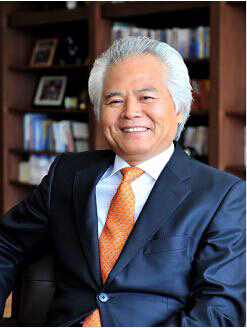- Nong Hong
- January 22, 2024
- Asia-Pacific, China, East Asia, Global, South China Sea, U.S.
- Global Politics, Maritime Studies, Security
Commentary by:

Chairman of the ICAS Advisory Board
Cover Image: Ivan Herman, 2013, flickr (Creative Commons Attribution BY 2.0)
The arbitration proceedings that the Philippines initiated against China more than three years ago regarding issues in the South China Sea should soon reach its end, and the arbitral tribunal is expected to rule shortly.
The US-led Western camp — all hoping for China to lose the case — are looking forward to the final piece to fall in place so that the plot is completed and China will be forced to submit to their pre-meditated outcomes and their set ways.
So skilfully staged by the Philippines and the champions of its cause (the US and Japan, etc.) and facilitated by prejudiced arbiters at The Hague, this episode ultimately aims to boot China out of the South China Sea arena.
Let’s look at the main plotlines that the US has helped the Philippines to fashion.
First, seek an arbitral ruling that Huangyan Island (also known as Scarborough Shoal) and the China-controlled Nansha Islands (also known as Spratly Islands) do not generate entitlement to territorial sea, exclusive economic zone and continental shelf, and that China had illegally interfered with the Philippines’ maritime rights.
Second, ask the arbitral tribunal to find that China’s assertions based on historical grounds lack legal basis, that the nine-dash line demarcation is inconsistent with UNCLOS, and that China’s activities in adjacent waters of Nansha islands and reefs violate UNCLOS. The Philippines wishfully believes that having the nine-dash line invalidated would automatically invalidate China’s sovereignty of the South China Sea islands. It also hopes that nullifying the island status of Nansha Islands (including Taiping Island, also known as Itu Aba) automatically deprives China of its right to claim exclusive economic zone and continental shelf based on the island regime.

The Institute for China-America Studies is an independent nonprofit, nonpartisan research organization dedicated to strengthening the understanding of U.S.-China relations through expert analysis and practical policy solutions.
1919 M St. NW Suite 310,
Washington, DC 20036
icas@chinaus-icas.org
(202) 968-0595
© 2024 INSTITUTE FOR CHINA-AMERICA STUDIES. ALL RIGHTS RESERVED.
2024-The South China Sea at a Crossroads, More Unilateral Actions Ahead (9DASHLINE In Forum)